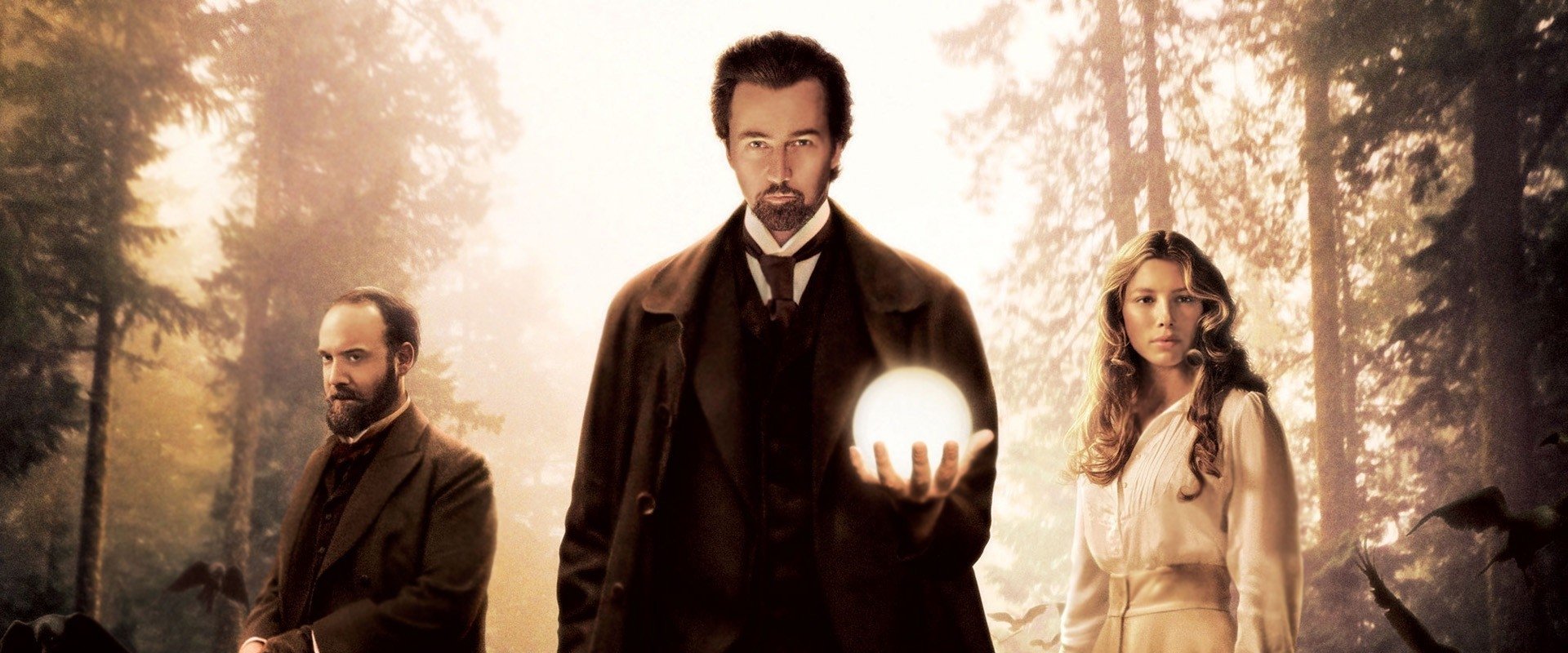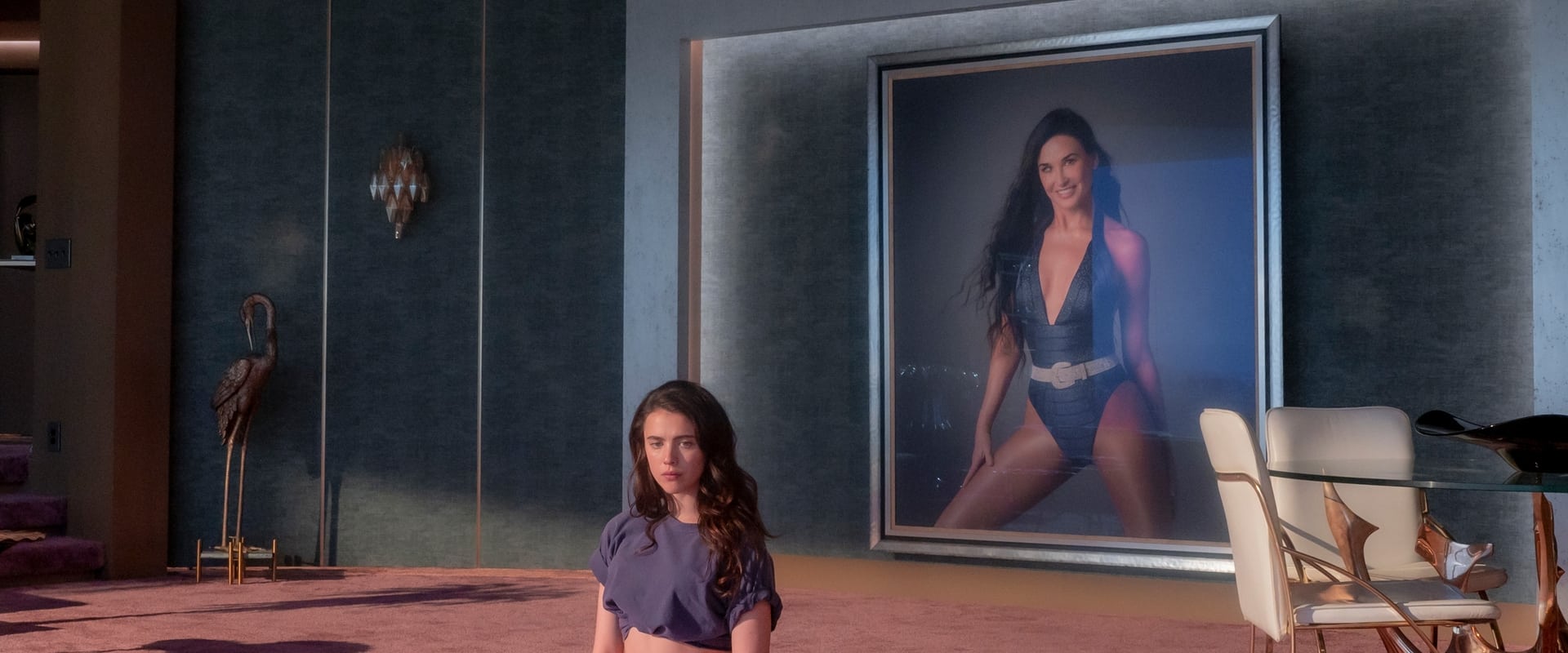There’s the art of magic, and then there’s the art of the movies — and sometimes, as in Neil Burger’s The Illusionist, you get the blessed, fizzing collision: a celluloid conjuring act so elegantly constructed, you half expect the film canisters to vanish into a swirl of sepia smoke. Here, the camera purrs through the gaslit wunderkammer of 19th-century Vienna, and history itself is spun into a stylish web of intrigue, murder, and—naturally—a little heartbreak. We’re so used to historical dramas treating events as window-dressing or, worse, solemn ballast, that it's a small miracle when a film like this one uses the sweep of real history—the Mayerling incident, no less—as a vital pulse beneath its rolling sleeves and hidden doves.
Let’s talk Mayerling: that little outpost of enigma where, in 1889, Crown Prince Rudolf and his lover were found dead in what the world would call a “murder-suicide”—shorthand for the kind of dynastic disaster that turns empires to sand. It’s all the better for The Illusionist that it’s less interested in dry recitation than in invention, seamlessly threading Rudolf’s real-life specter through its fictional coup of passion and treachery. Suddenly, the stakes are not just lovers on the run or a cardboard villain twirling mustaches — Burger slyly imbues Eisenheim’s forbidden amour with the full rubble and ruin of collapsing monarchies. You can practically smell the old world teetering on the abyss, and if that sounds grandiose, well, this is a movie that dreams large, right down to the last haunted theater trick.
Edward Norton steps into the limelight as Eisenheim, a man with the kind of celadon stare that makes half the audience reach for smelling salts and the other half for their pocket watches, lest he spirit those away too. Norton’s Eisenheim doesn’t play a mere romance—he seduces the city itself, occupies the cracks in its gilded façade, and his presence is all chilly poise bolstered by the thrum of something brittle, almost savage, smoldering beneath. Enter Jessica Biel as Sophie, and if her Duchess glides with the spectral grace of chloral-dreams past, her eyes flicker with the ache of a woman half-dissolved between memory and fate. The chemistry between these two is the stuff of late-night opium vision: slow, weighty, the air so thick you could slice it with an aristocrat’s breakfast knife.
But a magician is nothing without the threat of exposure, and Paul Giamatti’s Chief Inspector Uhl plays the grateful patsy, the audience stand-in, and—bless him—a man in whom decency and duplicity do an uneasy waltz. Giamatti gives us the rare pleasure of watching an actor act: Uhl's shifting allegiances, his moral teeter-totter, transform a potential plot device into an authentic, knuckle-gnawing presence. And what of Rufus Sewell? His Leopold lords it with the glint-eyed malevolence of a black cat stalking a canary. He’s all arrogance and cold sweat, a brute whose ambition sprawls over the chessboard Vienna like an ink blot.
Burger arranges his film not as a dry mystery but as a wandering parade—ghosts, feints, candlelit passageways that groan with secrets. We move from one illusion to the next: floating apparitions, phantom lovers, secrets whispered in velvet-lit halls. Here, reality and conjuration slip their leashes, and Burger is less interested in “how” the trick is done than what dreaming it makes us feel. Every set piece glimmers, every doorway seems to open on to another realm, and it’s to the film’s credit that it revels in the gasps of its audience without ever quite turning the applause lights off.
Ah, but here’s the trick within the trick: where Christopher Nolan’s The Prestige, that rival prestidigitation released the same year, knits its narrative with razor wire and obsession, The Illusionist is something altogether softer—a swoon, a ballet slipper instead of a bludgeon. The thematic territory isn’t just love versus ambition, but the human thirst for something beyond the dim geometry of daily life: the hunger to believe, if only for a flicker, that we can slip these manacles of fate. Norton’s Eisenheim seems not so much to bend reality as to seduce it; the audience, like Uhl, finds itself longing to be fooled.
This is, visually, a fever-dream of a period piece: cinematographer Dick Pope swaddles every frame in the honeyed blur of memory—sepia tones soft as whisky on a damp night, velvet shadows hinting at other dimensions. Philip Glass’s score lilts and pulses, at once propulsive and ephemeral, and if at times the costumes threaten to upstage their wearers, who’s to complain? It’s a film so chewed by detail that one expects the velvet curtains themselves to lean in and watch.
But what would a conjuring act be without a fugitive whiff of disappointment? Yes, some will point to the melodrama, to the magical flourishes skating a little too close to the edge of plausibility—illusions so “operatic” that you half-expect Eisenheim himself to take a bow and pull the moon from his pocket. This is where The Illusionist walks its tightrope: finding the sweet spot between the plausible and the preposterous, and asking us to leap, wide-eyed and complicit, into the void.
And therein lies the heart of the matter. It’s a film that approaches revelation, then demurs. The secrets behind its illusions remain stubbornly unspoken, inviting suspicion and yearning in equal measure. As in the best magic, withholding is half the pleasure—the ache of what we do not, cannot, quite see. Yet, in the cold light of day, one wonders if the most beautiful dream is that which leaves us hungriest.
Still, for all its shadowy reticence, The Illusionist delivers the one thing the best cinema always does: it transports. Here is a film unafraid to lean into romance, to set history ablaze, to let its characters dance at the edge of the historical precipice—glorious, trembling, alive. If, when the final curtains close, a handful of answers flit away, we remember: the most bewitching illusions are the ones that refuse to be fully understood.
So step right up, and surrender your skepticism. You may leave the theater not wholly sated, perhaps—pockets still full of questions, heart still thrumming for a final reveal. But that, I suspect, is the grandest illusion of all.


